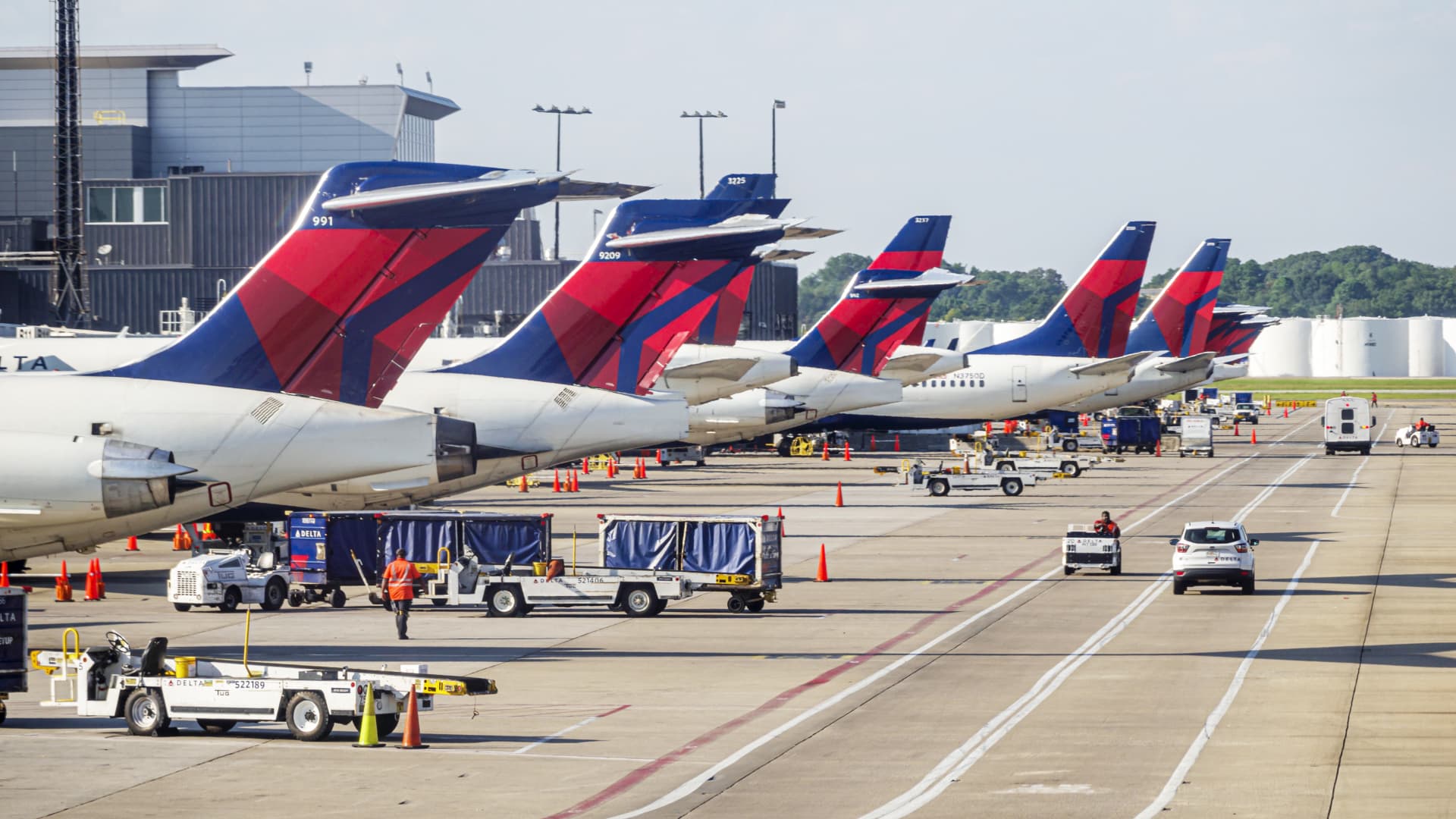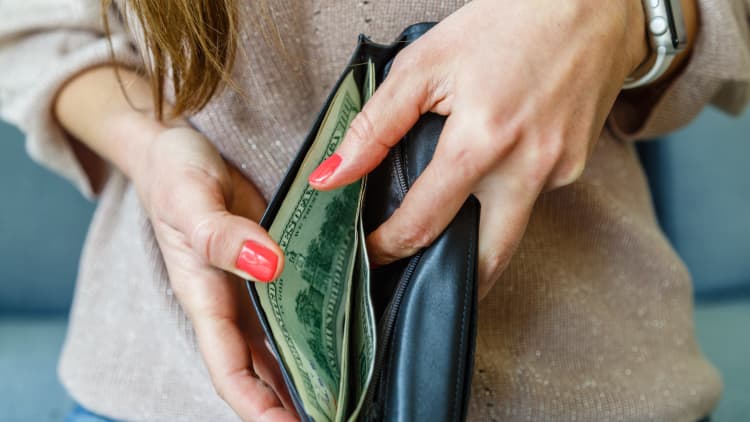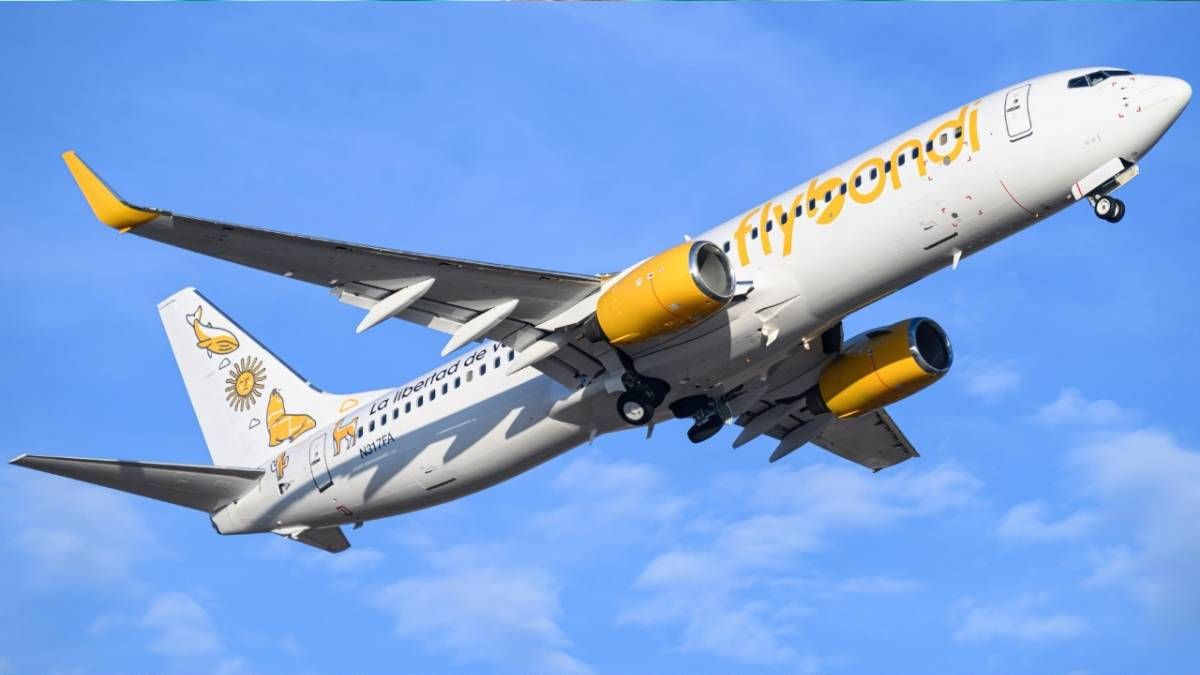
Between inflation and economic instability, Americans depleted most of what they had in their savings accounts.
More than half of Americans now live paycheck to paycheck, and most adults — 57% — can’t afford a $1,000 emergency expense, a Bankrate survey found earlier this year.
Meanwhile, experts say having a cash reserve is key and can prevent workers from turning to high-interest credit cards or making difficult withdrawals from their retirement accounts.
To address the savings crisis, an increasing number of employers are stepping in.
actually, Delta AirlinesStarbucks, Best Buy, and Levi’s, among others, have provided some sort of Emergency saving benefitmany of which are a result of new Secure 2.0 retirement legislation — a law passed in December that focuses on improving retirement security by making it easier for workers to build up and access emergency cash.
More personal finance:
Credit card rates are practically in “loan shark” territory.
3 financial moves millionaires are likely to make
Money market funds versus high-yield savings accounts
“The legislation has definitely started more conversations,” said Katie Taylor, vice president of planning and engagement at Fidelity Investments.
“The ability of an employer to help their employees feel like they have solutions to manage their overall finances is really important,” Taylor said.
Delta is offering workers up to $1,000
Delta Air Lines planes at Hartsfield-Jackson Atlanta International Airport.
Jeff Greenberg | Global Photo Collection | Getty Images
Under delta Emergency savings programAvailable to all employees below manager level, workers receive $750 deposited directly into a Fidelity account after completing one financial coaching session.
The airline will then match up to $250 of employee contributions made with payroll deductions to this account for a total of $1,000.
“Financial literacy is this generation’s civil rights issue,” said John Hope Bryant, chairman and CEO of Operation Hope, a nonprofit that worked in partnership with Delta and Fidelity Investments.
“It is just as important as the right to vote,” he added. “It is the lifeline of being able to live a good life.”
The pandemic has highlighted how important these programs are.
When the economy faltered, Delta workers took advantage of nearly $1 billion in hard withdrawals from their retirement accounts, Bryant said.
“People were suffering quietly,” he added.
Delta recently expanded the initiative globally, making more than 90,000 employees eligible. So far, more than 33,000 workers have participated, according to the company.
“I didn’t have a strategy in place on how to save money,” said Loretta Day, a Delta flight attendant based in Atlanta. “If you receive an email saying there is a sale on candles, it would be disrespectful not to take advantage of the sale.”
But she said it didn’t take long for Day, 51, to practice better financial habits once she finished the financial education class.
“It made me think about everything I spend money on that I already have at home,” Day said.
Since then, Day has paid off her credit card debt and started setting aside one paycheck a month for savings. She still buys the occasional candle, but she has a bigger purchase in mind: owning her own home, she said.
“I gave myself a year,” she said. “I feel confident now that when I’m ready to retire, I’ll be in a better place than I was,” he added.

“At the end of the day, we believe that investing in our employees is good for our customers and our shareholders,” said Kelly Elliott, vice president of Total Rewards at Delta.
Fidelity’s Taylor added that employees who are healthy are 10 times more likely to concentrate at work than employees who are not.
“There is a notable benefit for employers as well,” she said.
“Emergency saving is the new health insurance”
The ability to reduce According to Bryant, financial pressures and increased productivity will encourage many companies to follow suit.
“Financial literacy training and counseling tied to emergency savings is the new health insurance — that’s what every company will be doing in the next decade,” he said.
With the additional support, “workers will come earlier, stay longer and go the extra mile,” Bryant added. “It’s actually cheaper to treat your employees better – that’s why it will be sustainable.”
If your employer offers you something like free money, take it.
Douglas Boneparth
President and Founder of Bone Fide Wealth
“If your employer is offering you something that looks like free money, take it,” said Douglas Boneparth, a certified financial planner and president and founder of the company. Wealth Bone Intention, a wealth management firm based in New York. “That will always come in handy.”
“However, if it is not paired with an appropriate amount of discipline, it does not matter,” Bonneparth, a member of the FA Council, added to CNBC.
Above all, he advised to seize this opportunity to make the most of the financial education provided.

“Web maven. Infuriatingly humble beer geek. Bacon fanatic. Typical creator. Music expert.”


/cdn.vox-cdn.com/uploads/chorus_asset/file/23986615/acastro_STK097_01.jpg)

More Stories
Hollywood companies are trying a new approach to eliminating homeless encampments
Anglo American rejects enhanced £34bn offer from BHP
Stock Market News for May 12, 2024